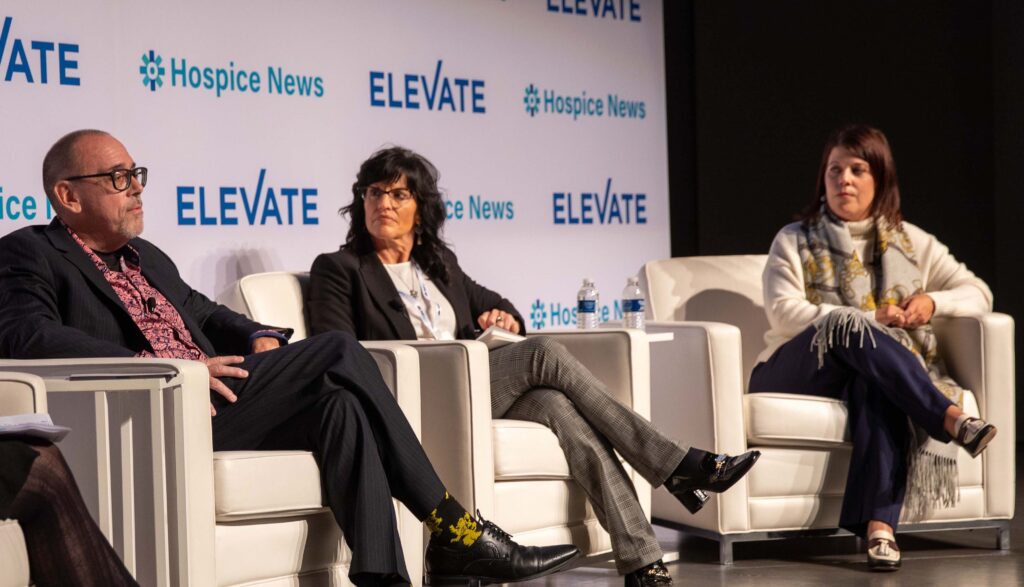Hospice providers are calling on regulators to change their approaches to enforcement due to the cost burden and the unpredictable nature of the dying process.
The U.S. Centers for Medicare & Medicaid Services (CMS) and the U.S Department of Health & Human Services Office of the Inspector General (OIG) have been cracking down on the industry with a heavy focus on patient eligibility and longer lengths of stay.
This has put hospices in a constant state of defense in today’s current regulatory climate, according to Craig Dresang, CEO of California-based YoloCares.
“The reality is that we are in this posture of always being prepared to react and respond to the current auditing environment,” Dresang told Hospice News at the ELEVATE conference in Chicago. “We have to come together as providers with a fire and energy to insist on change from CMS, because we’re tired of playing a ‘gotcha game’ with the federal government. They’ve made the dying process a game of dates and deaths.”
Current rubrics for eligibility and length of stay are difficult to align with patients’ actual experiences at the end of life. A six-month terminal prognosis, for example, typically represents clinicians’ best guesses as to how long the patient will survive. But those predictions are not hard and fast.
This degree of unpredictability can make compliance challenging for providers, Dresang indicated.
Hospices also encounter variations in auditing practices that can impact perceptions of the provider’s performance, according to Alisa Gerke, executive director of Wisconsin-based Unity Hospice & Palliative Care.
“Some markets are set up whereby the auditor is incentivized in that the more issues they find, the bigger their paycheck,” Gerke told Hospice News during the conference. “We have to evolve and evaluate our practices and processes. We can’t afford not to have compliance more organized.”
The costs associated with these audits and other regulatory actions are high, according to Gerke.
In some cases, hospices can sometimes spend more on legal fees than they would make if the Medicare claims in question are ultimately paid, she explained.
To reduce the impact internally, hospice leaders need a system in place to identify high- and low-risk processes in terms of compliance, Gerke said.
“It’s not just leadership saying that we need to do this or that. They need to give a really strong reason behind it,” Gerke said. “We need to guide staff as to where they spend their time around high-risk and low-risk areas. We can’t afford to address everything at once. It’s about identifying what’s high risk and hitting those areas first, and then working your way down.”
Even if hospices have compliance built into their planned expenses, the financial burden can affect care delivery, according to Christina Andrews, director of professional services at Axxess.
“With the money factor of compliance, hospices may have a budget in place around it, but it can still distract staff from providing care to patients and trickles into employees’ time, which impacts engagement,” Andrews said at ELEVATE. “With our workforce scarcity, many employees are wearing multiple hats. So it’s important to look at how we’re guiding clinicians to look at the levels of care and understand triggers of compliance risk.”
Some hospice providers and stakeholders are calling for changes to the hospice benefit to better align the structure with patients’ needs.
Providers, advocates and stakeholders in the space need to come together and call on CMS for change, starting with eligibility requirements, Dresang said at the conference.
“The bigger issue is that the hospice Medicare benefit is out of date. CMS has not updated their guidelines in decades, and hospice needs a refresh,” Dresang said. “The hospice benefit as we know it needs to be called something else. The language and expectations need to change. No one can really predict exactly when someone is going to die, but if they’re getting hospice and happen to live longer, you’re going to get penalized for it.”



